
Ilene Galinsky, BSN, MSN, ANP-C, discusses the evolution of targeted therapy in acute myeloid leukemia treatment, and how venetoclax plays into the treatment paradigm.

Ilene Galinsky, BSN, MSN, ANP-C, discusses the evolution of targeted therapy in acute myeloid leukemia treatment, and how venetoclax plays into the treatment paradigm.
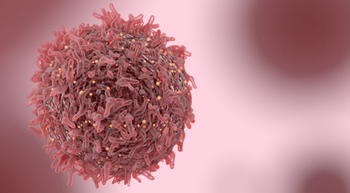
The NCCN guidelines have been amended to include trastuzumab deruxtecan for use in patients with HER2-low metastatic breast cancer and sacituzumab govitecan for use in patients with triple-negative breast cancer or hormone receptor–positive, HER2-negative disease.
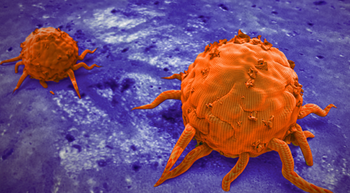
The addition of the HER2-Vaxx vaccine to chemotherapy resulted in 41.5% reduction in the risk of death compared with chemotherapy alone among patients with gastric cancers.

An updated safety and efficacy analysis of the ongoing CLL14 trial showed that venetoclax plus obinutuzumab continues to be an effective treatment for patients with chronic lymphocytic leukemia and coexisting conditions.
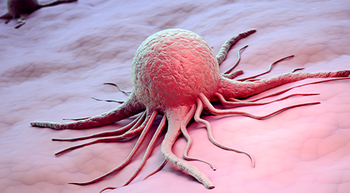
Data from the CheckMate 648 trial informed the FDA’s recent approval of 2 nivolumab combinations for esophageal squamous cell carcinoma. A 1-year follow-up analysis highlighted key safety and time-to-event data surrounding immune-related toxicities.

At the 2022 Supportive Care in Cancer Annual Meeting, Jeffrey Crawford, MD, highlighted the potential value of biosimilars in reducing gaps in care for the treatment of febrile neutropenia.

Utilization of specialty nurse practitioner driven teams and use of individualized pain protocols for patients admitted with vaso-occlusive pain crisis improves quality of life for patients with sickle cell disease, and decreased hospital stay times.

A study analyzing the long-term adrenal insufficiency outcomes of patients receiving immune checkpoint inhibition therapy found that secondary insufficiency was more common than primary in this patient population.

Although the CDC has put forth a strong effort to improve its opioid guidelines, many providers still feel that more can be done.

A real-world analysis showed that the proportion of women with ovarian cancer who required dose modifications or treatment discontinuations while receiving PARP inhibitors differed significantly between olaparib, niraparib, and rucaparib.

Frontline nivolumab and ipilimumab combination therapy was associated with increased 5-year survivorship in patients with metastatic non–small cell lung cancer—regardless of PD-L1 expression.

Ovarian clear cell carcinoma is a rare histological type of epithelial ovarian cancer that is typically resistant to chemotherapy and is historically associated with poor prognosis for patients.
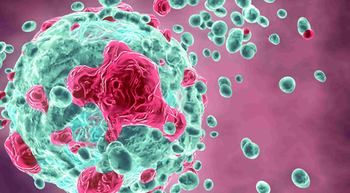
Relatlimab, a human LAG-3 blocking antibody, plus nivolumab, elicited superior progression-free survival in patients with advanced melanoma compared to nivolumab alone.

Patients with early-stage breast cancer who have low vitamin D counts may be at risk of developing chemotherapy-induced peripheral neuropathy.
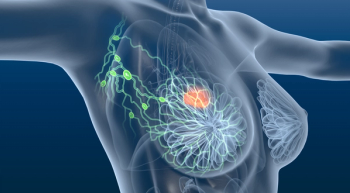
Reducing ribociclib dosing by 200 mg or 400 mg did not affect overall survival in patients with hormone receptor–positive, HER2-negative, advanced breast cancer.

Advocacy and opposition continue to grow regarding the National Organization of Nurse Practitioner Faculties’ goal of requiring the Doctor of Nursing Practice degree (DNP) for entry-level nurse practitioners.

Strategic tips for achieving a Nurse Practitioner certification and advancing your nursing career.

In this episode of “The Vitals,” Mark Honor, PA-C, discusses adverse event management in patients receiving different therapeutic options.

Experts from Roswell Park developed a dosing guide for the prescription of buprenorphine as treatment for chronic pain.

The COVID-19 pandemic has affected oncology practice in many ways. What will safe treating look like moving forward?

Mark Honor, PA-C, highlights best adverse event management practices for patients undergoing chemotherapy and immune-based treatment.

Patients who underwent surveillance with bioimpedance spectroscopy were less likely to develop chronic breast cancer–related lymphedema compared with patients who were assessed with tape measure.

A secondary analysis of the COACH study revealed that a geriatric assessment–guided intervention increased the number of comorbidity-related discussions between patients and providers.

In this episode of “The Vitals,” 2 veteran oncology nurses discuss the value of mentorship—particularly for novice nurses.

New data support smoking cessation for patients with lung cancer following their diagnosis.

An expert from Mount Sinai Hospital comments on potential new ruxolitinib combinations to treat patients with myelofibrosis and MPNs.

Patient advocate Jill Feldman led the development of the language guide to help promote patient-centered, stigma-free language across the lung cancer community.

Kathy Burns, MS, APRN-CNS, AGCNS-BC, of the Arthur G. James Cancer Hospital and Richard J. Solove Research Institute, comments on the importance of self-awareness as an oncology nurse when working to overcome one’s implicit bias.

Bruce Carleton, PharmD, FCP, FISPE, discusses the implications of research findings indicating that very young children are at a higher risk of cisplatin-induced hearing loss.

An expert discusses the value of enrolling patients with soft tissue sarcoma in histologically specific clinical trials.